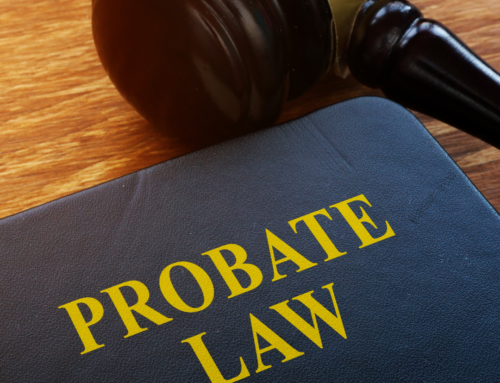March 2020
On March 16 Governor Newsom issued Executive Order N-28-20, which provided both guidance and enforcement mechanisms for local municipalities to prevent a possibly rapid increase in evictions and foreclosures arising out of the economic damage caused by of COVID-19. Most importantly, the Executive Order gave authority to California cities and counties to ban evictions for non-payment of rent if the tenant can prove their financial hardship was caused by the pandemic.
Both the City and County of Santa Barbara have enacted such bans within the last week.
What the Ordinances Do
- In both residential and commercial contexts, a tenant may avoid eviction for non-payment of rent if that tenant can prove that his or her inability to pay was caused by either a substantial loss of income (e.g. loss or reduction of employment, loss of business) or substantial out-of-pocket medical expenses associated with the Coronavirus pandemic, or any government response to that pandemic.
- If a tenant provides proof of such hardship to their landlord, the landlord may not evict them for non-payment of rent.
- This does NOT mean that the tenant will not need to repay their rent eventually. Both orders have provisions requiring full repayment of back rent due at some point in the future (either upon move-out, end of the lease, or within a specified time frame after the orders are lifted). It is therefore very important for a tenant to plan for future repayment of their rent and/or work with their landlord on a repayment schedule.
How Can you Protect Yourself from Eviction for Non-Payment of Rent?
- A tenant must provide a detailed notice to his or her landlord within 20 days of the date their rent became due. The notice must include:
- An explanation of what caused the economic hardship.
- Documentation sufficient for the landlord to verify that the hardship is real (e.g. wage statements, medical bills, etc.). If you are concerned about turning over sensitive information to your landlord, you should be aware that the Ordinances require landlords to safeguard such information.
- The Santa Barbara City ordinance also requires the tenant to indicate how much of their rent they believe they can pay until the hardship is abated.
- It is not enough for a tenant to simply stop paying rent. Nor is it enough for the tenant to provide a perfunctory verbal “notice” to the landlord.
- A landlord may still try to evict if they believe the notice provided by the tenant to be insufficient or fraudulent. A court will make that determination at the time of trial. It is important for tenants to provide as complete an explanation as possible – backed up by proof – in order to avoid allegations of fraud.
What Must the Landlord Do?
- If the tenant provides sufficient notice, the landlord may not evict the tenant. If they try, the tenant will have a complete defense against the eviction.
- The landlord must work with the tenant to either defer rent payments entirely, or reduce the rent as indicated in the case of a Santa Barbara City tenancy.
- The landlord may not charge late fees on rent deferred under the emergency ordinances.
- It is also very important that you do not take any action that might cause a constructive eviction (e.g. changing the locks, turning off the power, etc.). As is always the case, landlord self-help measures are not allowed under the law.
How Can You Protect Your Interests as a Property Owner?
- Continue to issue 3-day notices: There is nothing preventing you from issuing a 3-day notice if a tenant hasn’t paid their rent, and hasn’t yet given you notice that they can’t pay due to a pandemic-related hardship.
- While it is not required by the ordinances, it would be a good idea to add language to your existing 3-day notices that informs the tenants of what they need to do to invoke the protections of the emergency ordinances. This will help ensure that you get the information you need to make informed decisions, enable tenants to make the best case possible, and will help protect your interests if you think you are dealing with a fraudulent notice. Since the language used by the City and County notices varies somewhat, and because they both use slightly different requirements for residential and commercial tenancies, your best approach would be to speak to an attorney about what language best suits the needs of your property
- Carefully review tenant notices to ensure they comply with the ordinances. As discussed above, you do not have to accept a suspicious or plainly fraudulent notice; nor do you have to accept a perfunctory or incomplete notice.
- Keep good records. Your tenants’ rent will be due eventually, and you may need to prove to a judge that they owe what you claim they owe.
What If You Can’t Pay Your Mortgage?
- Talk to your bank. Governor Newsom’s Executive Order contains a “request” that financial institutions halt foreclosure activities arising out of pandemic-related financial hardships. This is still an emerging issue, and we do not know what steps the mortgage industry will take to implement the requested changes. That said, if you cannot pay your mortgage (either because your tenant has stopped paying rent, or because you are otherwise facing a financial hardship as discussed elsewhere in this email) you should inform your bank or other creditor so that they are well-positioned to make any accommodations they deem appropriate.
As always, if you have any additional questions or concerns, the attorneys at Fauver, Large, Archbald & Spray are here to help.

Christopher M. de la Vega
DISCLAIMER: This Advisor is one of a series of business, real estate, employment, estate planning and tax bulletins prepared by the attorneys at Fauver, Large, Archbald & Spray, LLP. This Advisor is not exhaustive, nor is it legal advice. You should discuss your particular situation with us or with your own attorney. Our legal representation is only undertaken through a written engagement letter and not by the distribution or use of this Advisor.





